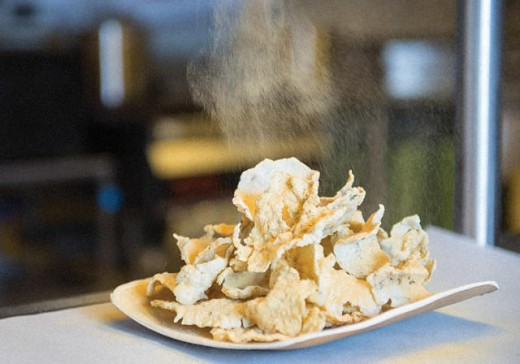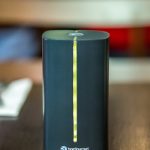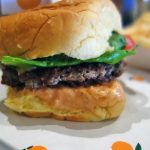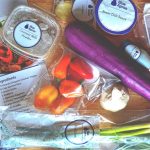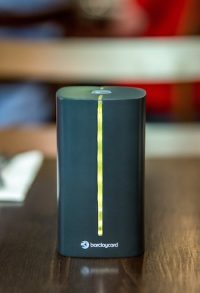Yes, This Super Healthy Seaweed Really Does Taste Like Bacon (We Tried It)
Could it be the next kale? The quest to engineer the mother of all superfoods that scientists describe as “like God’s vegetable.”
It sounds like the holy grail of vegetables. Packed with iron, calcium, magnesium, and protein, a type of seaweed called dulse also happens to taste like bacon. Well, sort of. When the little-known algae started making headlines for its flavor, we tried frying some up.
The verdict: Yes, with its savory, umami, and salty taste, it’s sort of like bacon. A smoked version is even more bacon-like. It probably wouldn’t be mistaken for meat in a blind taste test. But pan-fried in a little oil? It’s crispy and delicious.
Researchers at Oregon State University, who have patented a variety of the seaweed that’s extra quick to grow, hope to soon begin farming it and creating a new commercial industry for what they see as the next superfood.
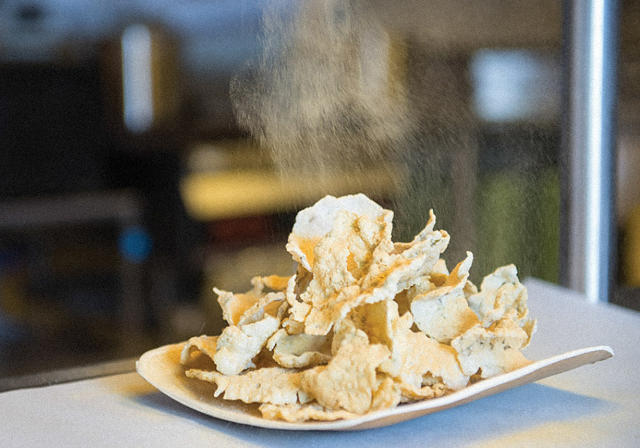
“It’s got all the bells and whistles,” says Chuck Toombs, a professor in OSU’s business school. “It’s a sustainable product. We even got a call from the Department of Energy…: It’s a carbon sink. It eats carbon, and produces protein. It’s like God’s vegetable.”
Toombs learned about the seaweed in the school’s Hatfield Marine Science Center and realized it had potential to go to market. “I didn’t know much about seaweed at all,” he says. “But what struck my eye is how prolific it is—it grows so fast—and the protein content. Then when I learned another dulse product was selling at Whole Foods for $60 a pound, that piqued my economic interest.”
Right now, the tiny supply of dulse in the U.S. is harvested in the wild in Maine and other states and sold in small quantities in health food stores. But the new strain developed at OSU could be grown more quickly and farmed in tanks rather than in the open sea. “The advantage of farming it is that we can control the quality,” Toombs says.
Controlled farming can avoid the risk that the seaweed contains toxins. A package from Maine comes with a somewhat ominous note: “Tested for chemical, heavy metal, petroleum, radioactivity and microbiological contaminants.” Like the fish that eat it, seaweed can absorb heavy metals like mercury if it’s growing in a polluted area.
Now, the researchers are testing ways to create an ocean-like environment in tanks. “We’ve got a grant to look at growing it in freshwater where minerals are added to make it like seawater, so that could be grown in inland areas as well,” says Michael Morrissey, the director of the Food Innovation Center at the university. “The primary ingredients are sunlight and cold water.”
Working with a “research chef,” they created 30 different potential foods based on the dulse flavor and nutritional profile and decided to focus on two—rice chips and salad dressing. The seaweed’s ability to taste like bacon wasn’t the focus, contrary to the impression given by much of the news coverage the group received. It turns out that all fried dulse has that flavor, not just this variety. I picked up my sample at the small seaweed section of the packaged foods aisle at Whole Foods.
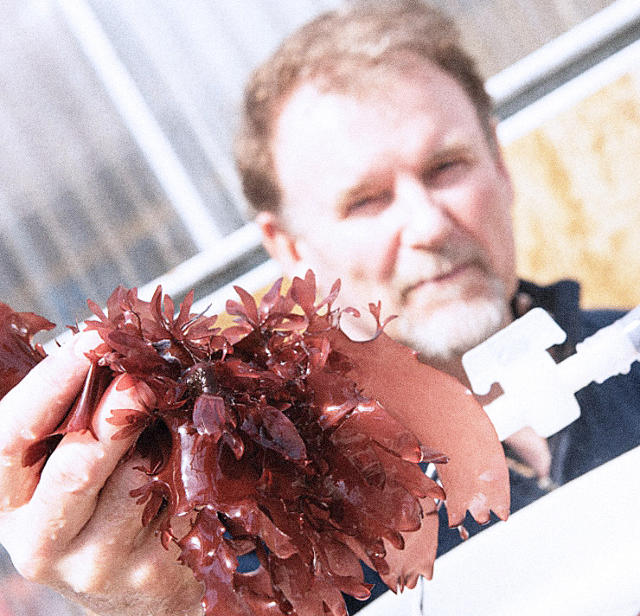
Toombs, like some other researchers, is convinced that the seaweed can be the next kale. “This product has so much capability,” he says. “Kale doesn’t even taste that good.”
The team plans to try to push the dulse to replicate kale’s success. “If you look at Google Trends for kale, it’s over about a 13-year period,” he says. “There’s several events, like, for example, Gwenyth Paltrow went on the Ellen show and talked this stuff up. These random events made kale popular. My thought from a marketing standpoint was: Could we take this trend and manage it, and instead of taking 13 years it takes two years?”
The researchers say it may be the most productive protein source in the world and could eventually be a more sustainable source of nutrition for a much bigger population. As an exercise, they calculated how much room they’d need to grow enough protein for every single person on Earth; the answer was a 20-by-20 square mile chunk of the ocean, as long as the water is the right temperature.
Toombs wants to feed the world. “I think this is going to be a billion dollar company,” he says. “Producing really good food products, in Portland, Oregon, that are good for you. I see no reason why our rice chip can’t go after the potato chip business. I think it’s limitless in that sense.”
Fast Company , Read Full Story
(145)

